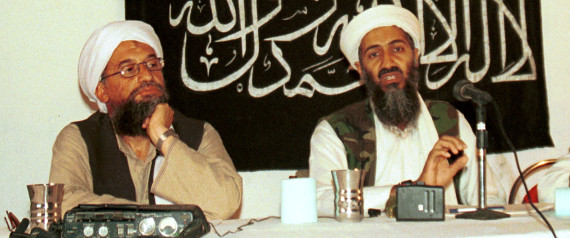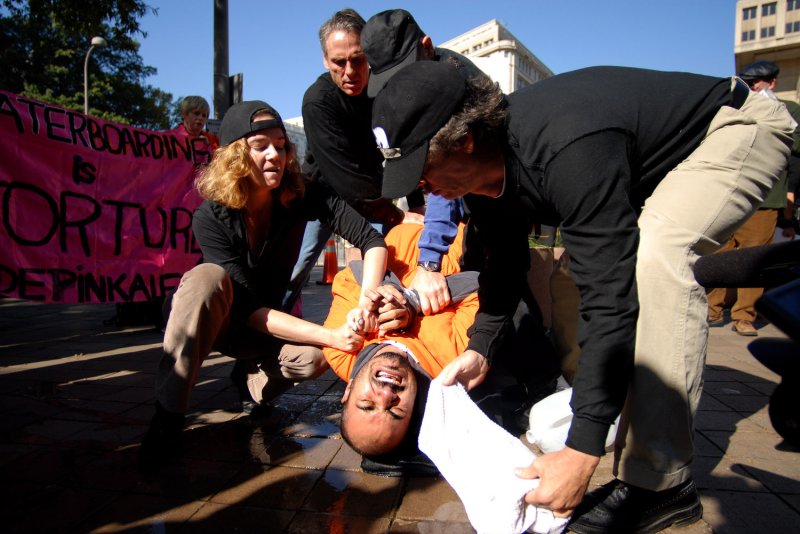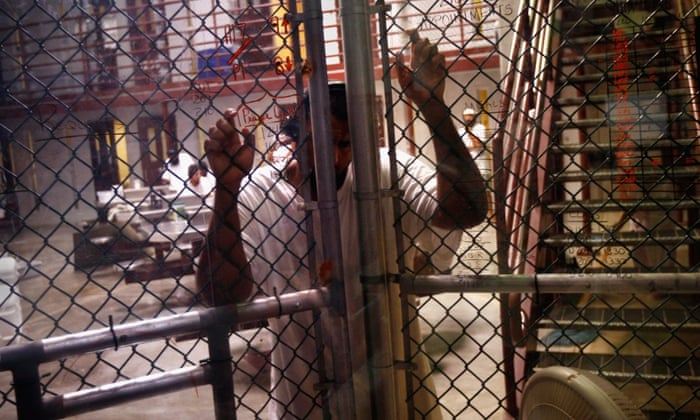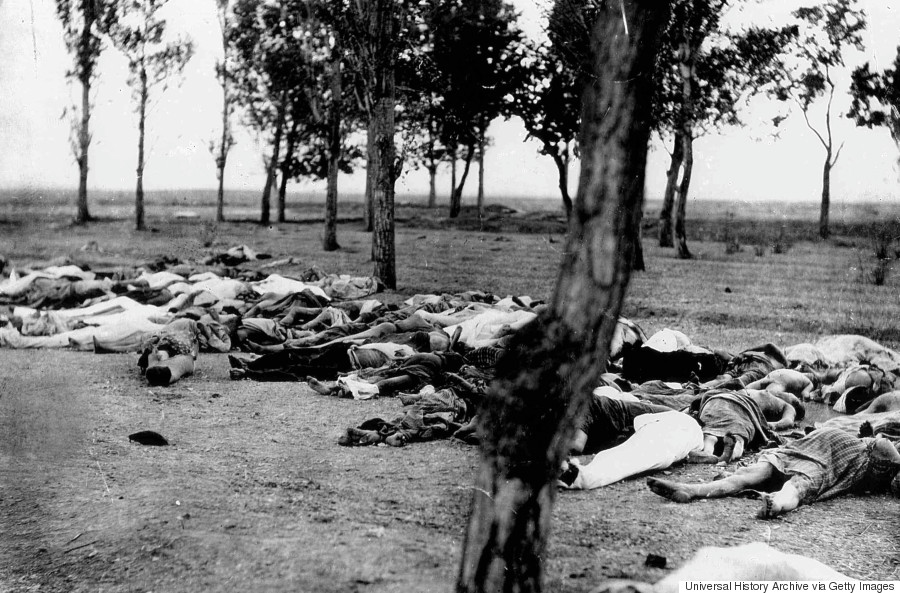 In the immediate aftermath of Seymour Hersh’s winding narrative on the killing of Osama bin Laden and an alleged cover-up by the U.S. government, officials, spies and even other journalists have been quick to label the story a sham.
In the immediate aftermath of Seymour Hersh’s winding narrative on the killing of Osama bin Laden and an alleged cover-up by the U.S. government, officials, spies and even other journalists have been quick to label the story a sham.
But now, multiple news sources are backing up at least one aspect of Hersh’s controversial account on the 2011 raid: It was a Pakistani tipster who ultimately led U.S. special forces to the fugitive’s Abbottabad compound, not the courier Abu Ahmed al-Kuwaiti, whose identity was supposedly revealed by CIA detainees.
Which, if true, would mean the key to bin Laden’s location was not, as the agency tells it, torture.
Is The CIA's Case For Torture Unraveling?
American Psychological Association helped Bush justify torture
 The American Psychological Association is accused of secretly collaborating with former President George W. Bush's administration to justify torture.
The American Psychological Association is accused of secretly collaborating with former President George W. Bush's administration to justify torture.
The All the President's Psychologists report, written by doctors, professors and human rights activists, accuses the APA of working to keep psychologists involved with interrogation programs after the public saw the graphic photos of prisoner abuse in the Abu Ghraib Iraqi prison by U.S. military personnel.
The APA's actions coincided with efforts by senior Bush administration officials to keep the programs alive.
Meet The Only Person Being Punished After The Senate Torture Report
Five months after the Senate Intelligence Committee released its gruesome report on the CIA’s post-9/11 torture program, someone is finally paying steep professional consequences. Except it’s not the former torturers. Or their superiors. Or even the CIA officials who improperly searched the computers that Senate investigators used to construct the study.
It’s the person who helped expose them.
Alissa Starzak, a former Democratic majority staffer on the Senate Intelligence Committee, played a critical and controversial role during her time on the panel: She was a lead investigator for the torture report, and was one of two staffers involved in an ongoing feud over damning internal CIA documents obtained by the committee.
The CIA’s black marks on humanity
 One recent afternoon in Arlington, Virginia, I found myself doing pushups alongside a host of military and civilian attorneys, paralegals and other employees of the Office of the Chief Defense Counsel. It is part of the Defense Department’s Office of Military Commissions, which oversees war court proceedings for detainees at Guantánamo Bay, and I was visiting at 1 p.m. — designated pushup time.
One recent afternoon in Arlington, Virginia, I found myself doing pushups alongside a host of military and civilian attorneys, paralegals and other employees of the Office of the Chief Defense Counsel. It is part of the Defense Department’s Office of Military Commissions, which oversees war court proceedings for detainees at Guantánamo Bay, and I was visiting at 1 p.m. — designated pushup time.
That wasn’t my original plan: I’d been scheduled to attend April pretrial hearings in Guantánamo for five high-value detainees (HVDs) accused of involvement in 9/11, but when the hearings were canceled by the case’s military judge, Arlington seemed to be the next best destination.
100 Years Ago, 1.5 Million Christian Armenians Were Systematically Killed. Today, It's Still Not A 'Genocide'
 On April 24, 1915, Ottoman Turkish authorities hauled off Daniel Varoujan, a leading Armenian poet of the time, along with over 200 other intellectuals in the capital Constantinople. To the crumbling Ottoman Empire, the poets, painters, writers, booksellers and politicians at the beating heart of the Armenian community posed too much of a threat.
On April 24, 1915, Ottoman Turkish authorities hauled off Daniel Varoujan, a leading Armenian poet of the time, along with over 200 other intellectuals in the capital Constantinople. To the crumbling Ottoman Empire, the poets, painters, writers, booksellers and politicians at the beating heart of the Armenian community posed too much of a threat.
Soon, much of the empire’s Christian Armenian population would be targeted and nearly wiped out, accused of conspiring against the empire with the Russians. Many Armenians say the genocide was collective punishment for the actions of a few.
US law enforcement accused of using entrapment to ensnare ‘terrorists’
 The recent arrests on terrorism-related charges of six young Somali-Americans from Minneapolis and others throughout the United States have prompted renewed questions over the issue of entrapment, and over the degree of real security achieved by disrupting plots that law-enforcement had helped shape.
The recent arrests on terrorism-related charges of six young Somali-Americans from Minneapolis and others throughout the United States have prompted renewed questions over the issue of entrapment, and over the degree of real security achieved by disrupting plots that law-enforcement had helped shape.
The six, ages 19 to 21, were charged with conspiracy to aid and support a terrorist organization, and are accused of trying to travel to Syria to join the Islamic State in Iraq and the Levant (ISIL, also called ISIS).
Slavery taints global supply of seafood
 The Burmese slaves sat on the floor and stared through the rusty bars of their locked cage, hidden on a tiny tropical island thousands of miles from home.
The Burmese slaves sat on the floor and stared through the rusty bars of their locked cage, hidden on a tiny tropical island thousands of miles from home.
Just a few yards away, other workers loaded cargo ships with slave-caught seafood that clouds the supply networks of major supermarkets, restaurants and even pet stores in the United States.
Here, in the Indonesian island village of Benjina and the surrounding waters, hundreds of trapped men represent one of the most desperate links criss-crossing between companies and countries in the seafood industry. This intricate web of connections separates the fish we eat from the men who catch it, and obscures a brutal truth: Your seafood may come from slaves.
More Articles...
Page 28 of 197

 Human Rights Glance
Human Rights Glance






























